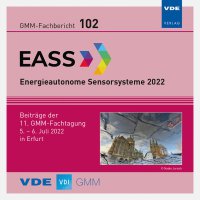Why the electronics industry must address sustainability
Konferenz: EASS 2022 - 11. GMM-Fachtagung Energieautonome Sensorsysteme 2022
05.07.2022 - 06.07.2022 in Erfurt, Germany
Tagungsband: GMM-Fb. 102: EASS 2022
Seiten: 3Sprache: EnglischTyp: PDF
Autoren:
Kerbusch, Jochen (Institut für Innovation und Technik (iit) in der VDI/VDE Innovation + Technik GmbH, Berlin, Germany)
Inhalt:
Digitization is a major driving force in the electronics industry and is ubiquitous today. However, data cannot be captured without sensors, processed without computing cores, and information cannot be conveyed without interfaces to humans. The increase in digitization of our everyday lives is leading to an increasing penetration of electronics in the world. Electronics make an important contribution to meeting the challenges posed by climate change (“Green by ICT”). This is particularly true for sensor technology allowing for the optimization of processes of all kinds and thus also the raising of large savings potentials. On the other hand, electronics must also face up to sustainability along the entire product life cycle in order to actually achieve “Green ICT” status. The first influences of climate change on the economy are becoming apparent. In addition to an increasing awareness of sustainability among end consumers, in extreme cases even production is threatened. Marketing has changed, CO2 neutrality is the new differentiator. Beyond the CO2 footprint, however, other factors are just as important: dry periods cause water shortages, the procurement of raw materials is becoming more difficult, and working conditions are critical in some cases. Electronic waste and production waste are insufficiently recycled or not recycled at all. Rebound effects even lead to a reversal of potential savings [1]. Against this background, the conflicting demands of society, ecology and the economy in the field of electronics will be discussed with a specific view on sensor systems.


